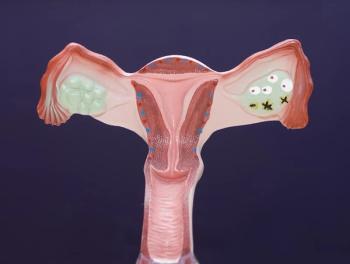
Miami Breast Cancer Conference® Abstracts Supplement
- 40th Annual Miami Breast Cancer Conference® - Abstracts
- Volume 37
- Issue suppl 4
- Pages: 50
51 The Race, Staging, and Clinical Correlations With Genetic Mutations Diagnosed in Breast Cancer Patients of Multiethnicity Background
Background
Genetic testing has been applied increasingly widely in oncology, and guidelines and criteria have been established for the selection of testing. The makeup of genetic mutations in a cohort of patients with breast cancer and multiple ethnic backgrounds, and its pathoclinical correlations is of interest and thus the aim of this study.
Materials and Methods
Breast cancer patients who have been treated in Maimonides hospital and have had a genetic test performed between 1/1/2010 until 1/31/2022 were eligible. Patients were randomly approached for consent for the study. The results from the 767 breast cancer patients who were enrolled in this study were analyzed.
Results
Among 767 patients, 77 patients were found to have germline mutations, including BRCA1 (n = 20), BRCA2 (n = 19), PALB2 (n = 12), CHEK2 (n = 6), ATM (n = 4), RAD50 (n = 4), and others (n = 12). The race and ethnic groups were White/Caucasian (n = 23), African American (AA) (n = 25), Asian (n = 13), Jewish (n = 12), and Hispanic (n = 4).
Genetic testing was performed when the tumors were diagnosed with stage I-II in 77.9% of cases in the entire cohort, or 77.8% in White + Jewish, 100% in Asian, 75% in Hispanic patients, but only 64% in AA patients.
Nonmetastatic tumors with a BRCA1/2 mutation had a distribution in stages I, II, and III to be 30%, 37.5%, and 27.5%, respectively, while that PALB2 was 0%, 83.3%, and 8.3%, respectively.
BRCA1 cancers showed 61.9% triple negative, 23.8% ER+/ Her-2 neg, 14.3% ER-/HER-2 + distribution, and BRCA2 cancers showed 31.6% triple negative, 63.2% ER+/HER-2 neg, and 5.3% ER+/HER-2 + distribution. PALB2 cancers showed 16.7% triple negative, 58.3% ER+/HER-2 neg, and 25% ER+/HER-2+ distribution.
Four (5.2%) patients with male breast cancers were found, with mutations on BRCA2 (n = 2), RAD 50 (n = 1), and APC (n = 1); 3 were ER+/HER-2 neg; and 1 was ER+/HER-2+.
The median age for the first breast cancer diagnosis was 48 years old, and the age range was 34-90 years old. 5 (6.5%) patients presented with synchronous bilateral breast cells, while 7 (9.1%) patients had a metachronous second primary breast cancer. 16 (20.8%) patients had a personal history of 2 cancers. If NCCN criteria are used for selection for genetic testing, 8 (10.4%) patients will not meet the test criteria.
Conclusions
In this multiethnicity cohort, more than 77% of the genetic mutations were performed in patients diagnosed with early stage I-II breast cancers, while it was 64% in AA subgroup. BRCA1/2 cancers presented in all different early stages, while PALB2 cancers were mainly at stage 2 at diagnosis. Triple-negative cancers are most common in BRCA1 mutation carriers but can be seen in other mutation carriers as well. RAD50 and APC mutations can cause male breast cancer, in addition to the well-known BRCA2 mutation. A number of patients can have bilateral breast cancers and other second primary cancers. Applying NCCN guidelines for selection for genetic testing would miss 10% of patients who can benefit from genetic counseling.
AFFILIATIONS:
Nay Yee Wint Kyaw,1 Vijaya Natarajan,1 Theresa Durana,1 Yiqing Xu1
1Maimonides Cancer Center, Brooklyn, NY.
Articles in this issue
Newsletter
Stay up to date on recent advances in the multidisciplinary approach to cancer.




































